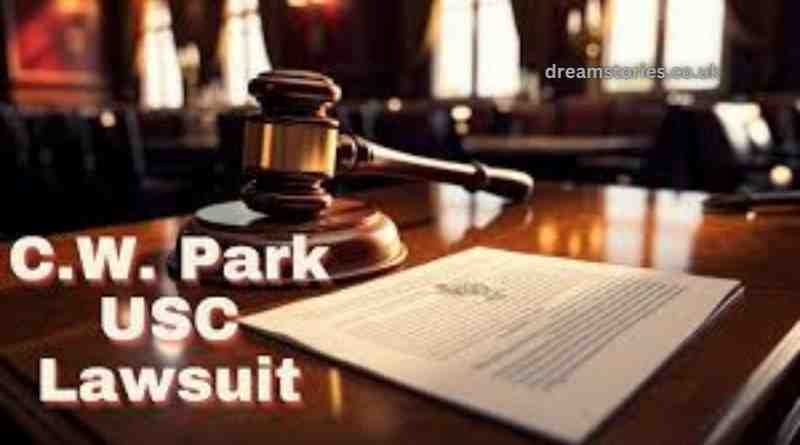The legal battle involving C.W. Park and the University of Southern California (USC) has captured the attention of academia and the legal community alike. This C.W. Park USC lawsuit, rooted in allegations that have profound implications for both parties involved, sheds light on the intricate dynamics within educational institutions and the complexities of legal disputes in the academic sphere. This article aims to dissect the C.W. Park USC lawsuit meticulously, offering readers an in-depth analysis of the events that led to the legal confrontation, the core issues at stake, and the potential ramifications for the parties involved and the academic community at large.
The Genesis of the Lawsuit
To understand the complexities of the C.W. Park USC lawsuit, one must first delve into the events that precipitated this legal battle. C.W. Park, a renowned figure in the academic world, found himself at the center of a controversy that would eventually lead to a significant legal confrontation with USC, an institution known for its prestigious standing and academic excellence.
Background and Allegations: The lawsuit stems from specific allegations made by Park against USC, centered around what he claims to be wrongful termination, breach of contract, and possibly other legal violations. These allegations suggest a profound disagreement between Park and the university regarding the circumstances leading to his departure from the institution.
Initial Reactions and Proceedings: The response from the academic community and legal experts to the filing of the lawsuit was marked by a mixture of surprise and keen interest. The initial legal proceedings provided a glimpse into the legal strategies that both parties might employ, setting the stage for a contentious battle ahead.
Legal Framework and Theories
Exploring the legal underpinnings of the C.W. Park USC lawsuit requires an examination of the claims made by both parties, the relevant legal statutes, and the theories that are likely to play a central role in the litigation process.
Contractual Obligations and Breach: At the heart of the lawsuit are the contractual obligations that existed between Park and USC. The allegations of breach of contract suggest that there were specific agreements in place that Park believes were not honored by the university, leading to disputes over the terms and their interpretation.
Employment Law Considerations: Employment law principles are also crucial in understanding the dynamics of this case. Issues such as wrongful termination and the legal protections afforded to employees in academic settings will be pivotal in determining the outcome of the lawsuit.
The Legal Battle Unfolds
As the legal proceedings progress, the strategies employed by both sides, the evidence presented, and the arguments made by legal counsel will significantly influence the direction and outcome of the case.
Key Legal Arguments and Evidence: Both parties are expected to present a range of legal arguments and evidence to support their positions. For Park, this might include documentation and testimony related to his employment agreement and the circumstances surrounding his termination. USC, on the other hand, will likely counter with its narrative, emphasizing the reasons behind their decisions and the legal justifications for their actions.
Implications for Employment and Contract Law in Academia: The C.W. Park USC lawsuit is set to have broader implications beyond the immediate parties involved. The legal principles and outcomes could influence employment and contract law in academia, potentially setting precedents for how disputes of this nature are handled in the future.
Broader Impact and Repercussions
The repercussions of the C.W. Park USC lawsuit extend beyond the legal realm, potentially affecting academic policies, employment practices, and the culture within academic institutions.
Academic Policies and Employment Practices: Depending on the outcome, universities across the nation might revisit their employment policies and contractual agreements with faculty members, aiming to prevent similar disputes in the future.
Cultural and Ethical Considerations: The lawsuit also raises questions about the culture within academic institutions, especially regarding how disagreements and conflicts are managed. Ethical considerations, particularly in handling disputes and terminations, are spotlighted, prompting a reevaluation of practices and principles.
Conclusion
The C.W. Park USC lawsuit is a complex legal battle with significant implications for both parties and the academic community at large. As this case unfolds, it will undoubtedly provide critical insights into employment and contract law in the academic context, while also prompting discussions about the ethical and cultural practices within educational institutions. The legal showdown between Park and USC is more than just a dispute between an individual and an institution; it is a litmus test for the values, principles, and legal standards that govern academic employment and contractual relationships. As observers, scholars, and legal experts watch closely, the outcomes of this lawsuit may well shape the future of academic governance and dispute resolution in higher education.
Read also: check

